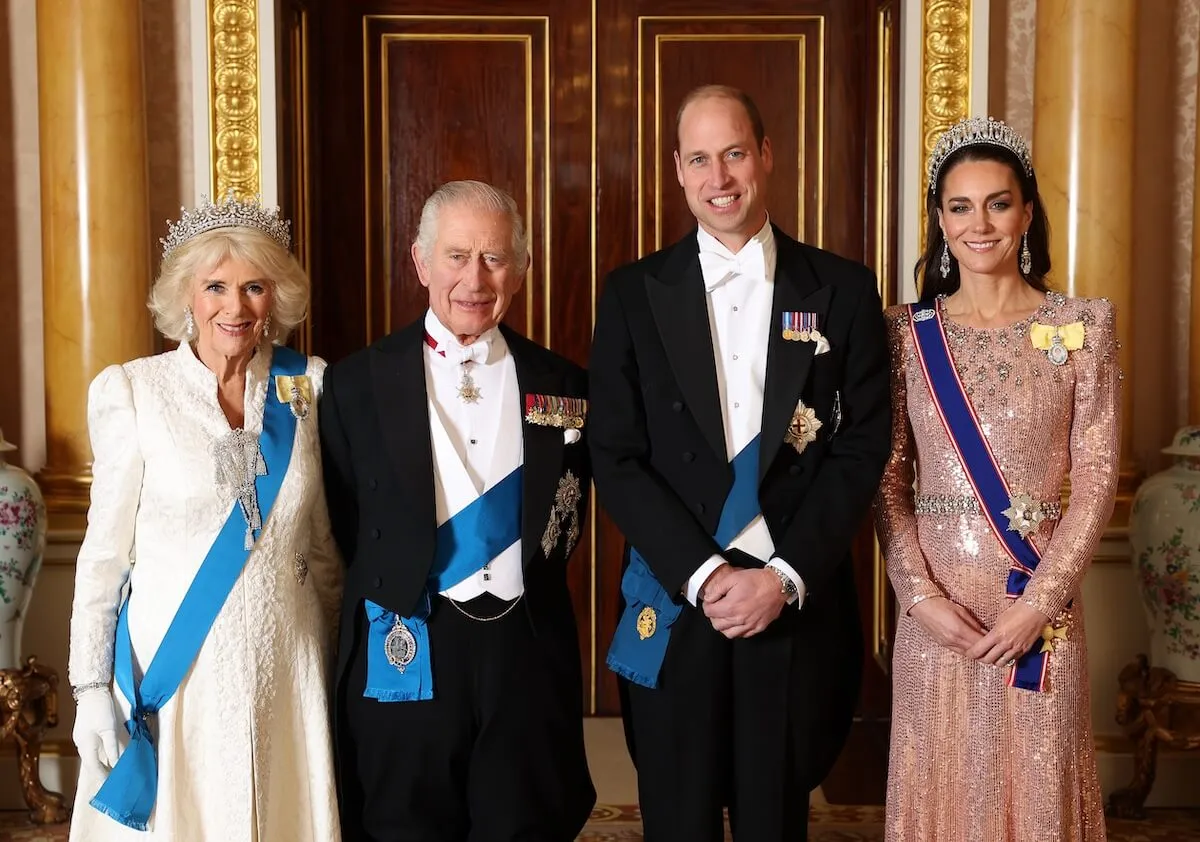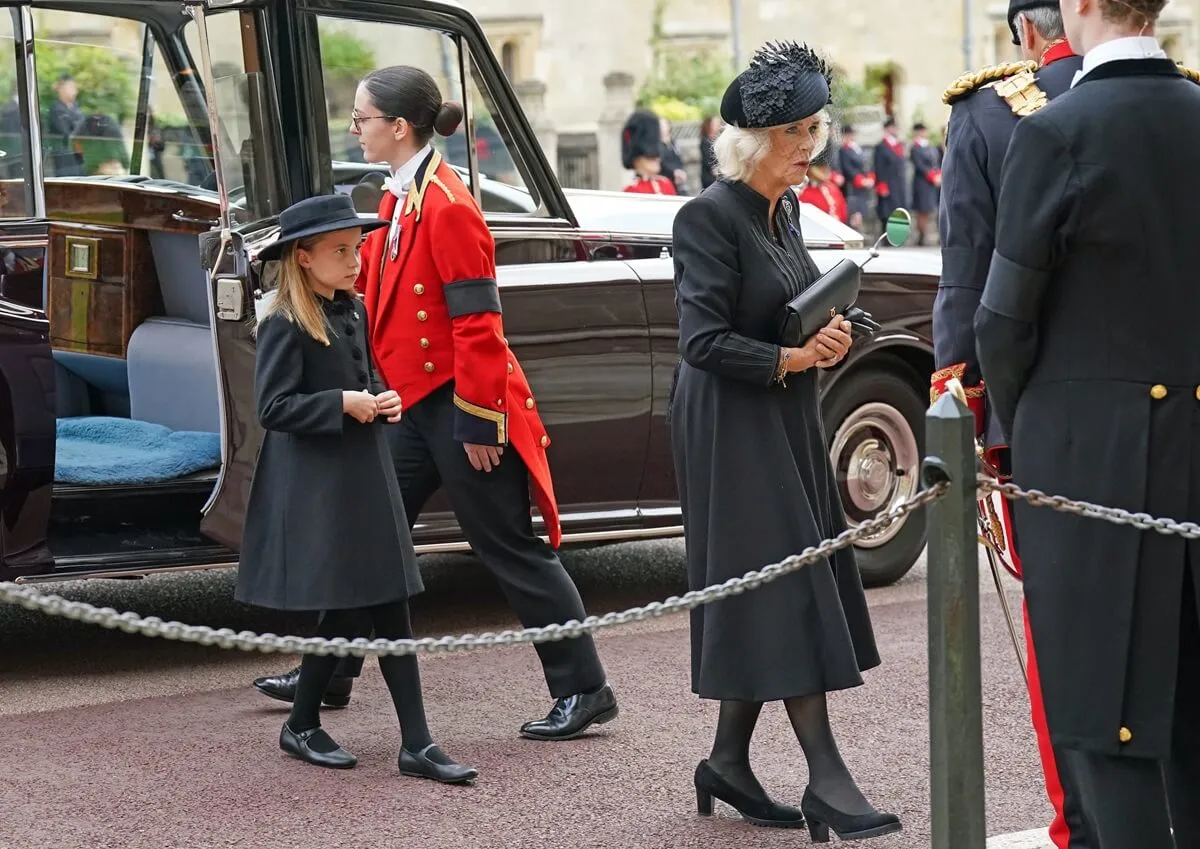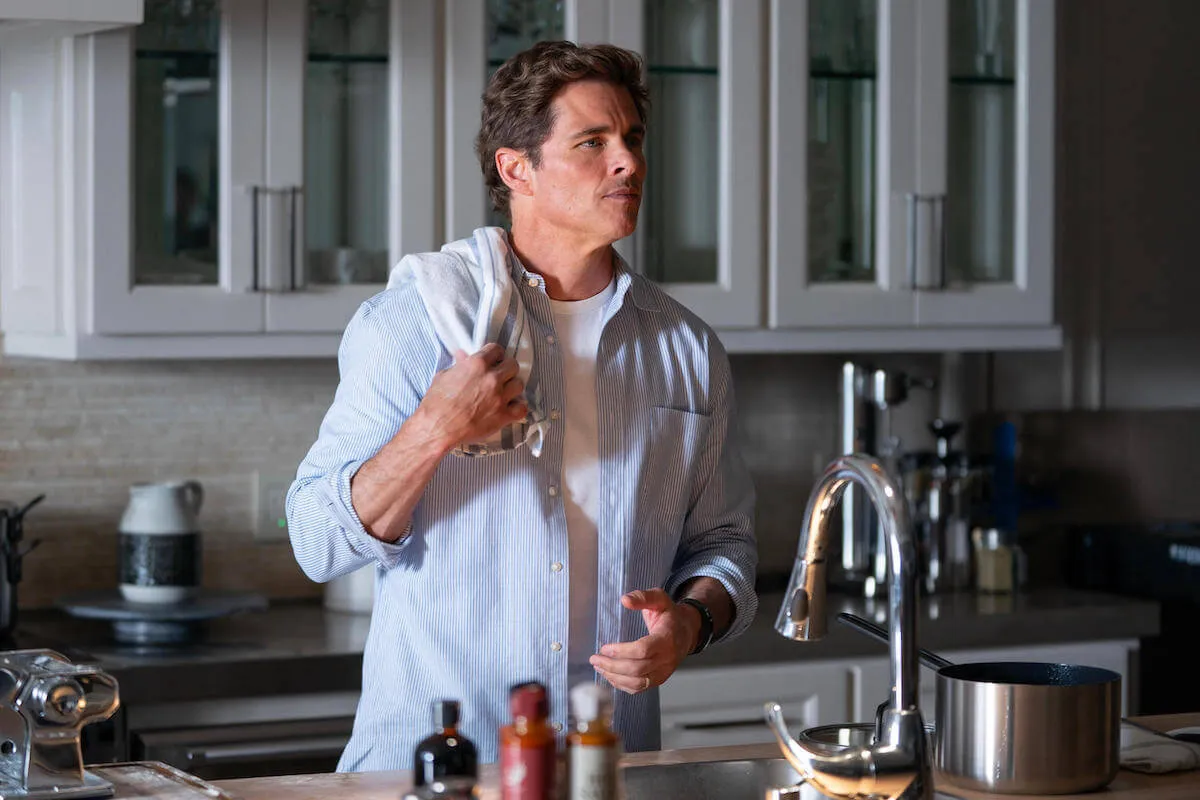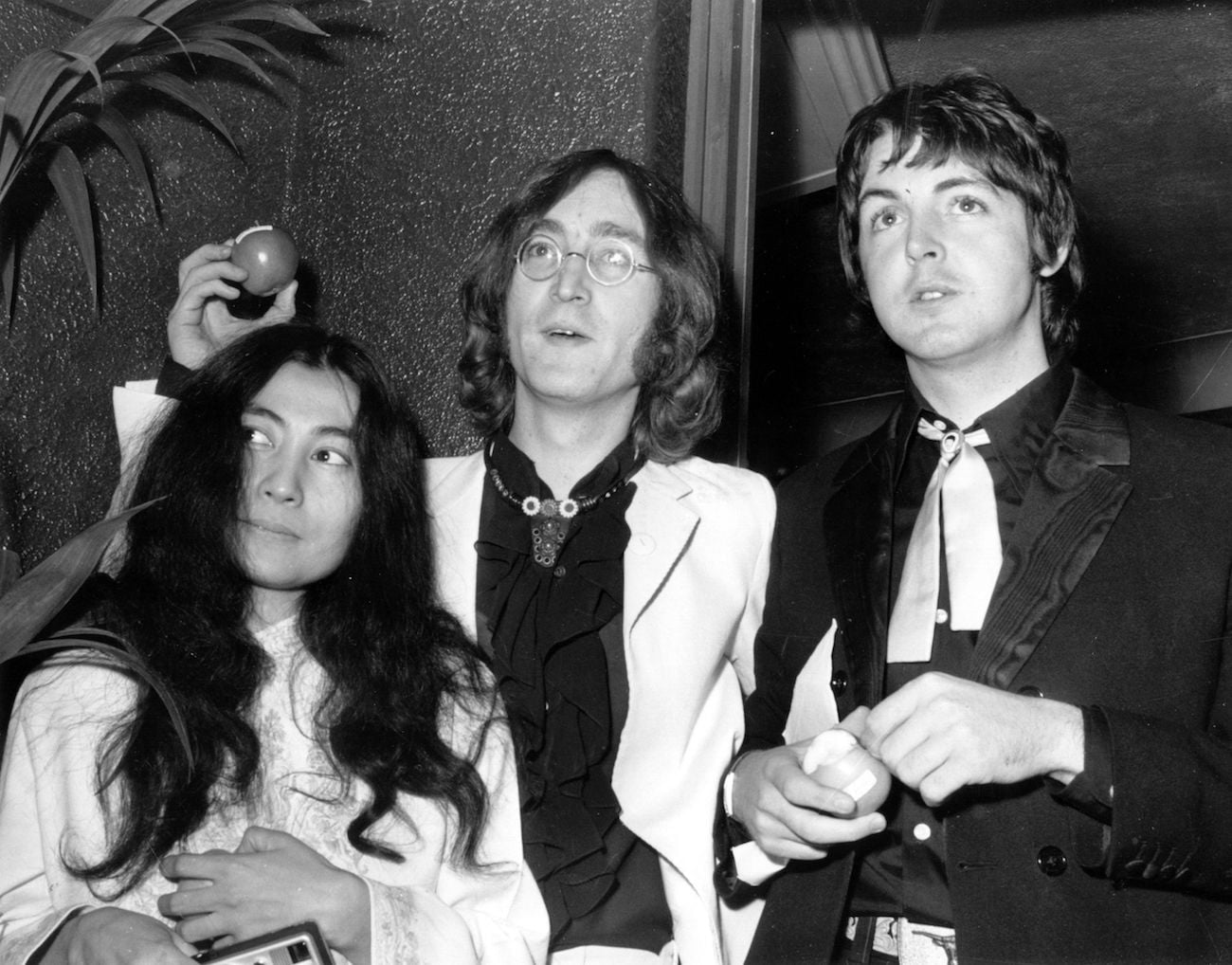
Paul McCartney Said John Lennon Was Excited to Tell Him He Was Leaving The Beatles
Paul McCartney claims John Lennon was excited to tell him he was leaving The Beatles for good. It was not a good time for the songwriting partners.
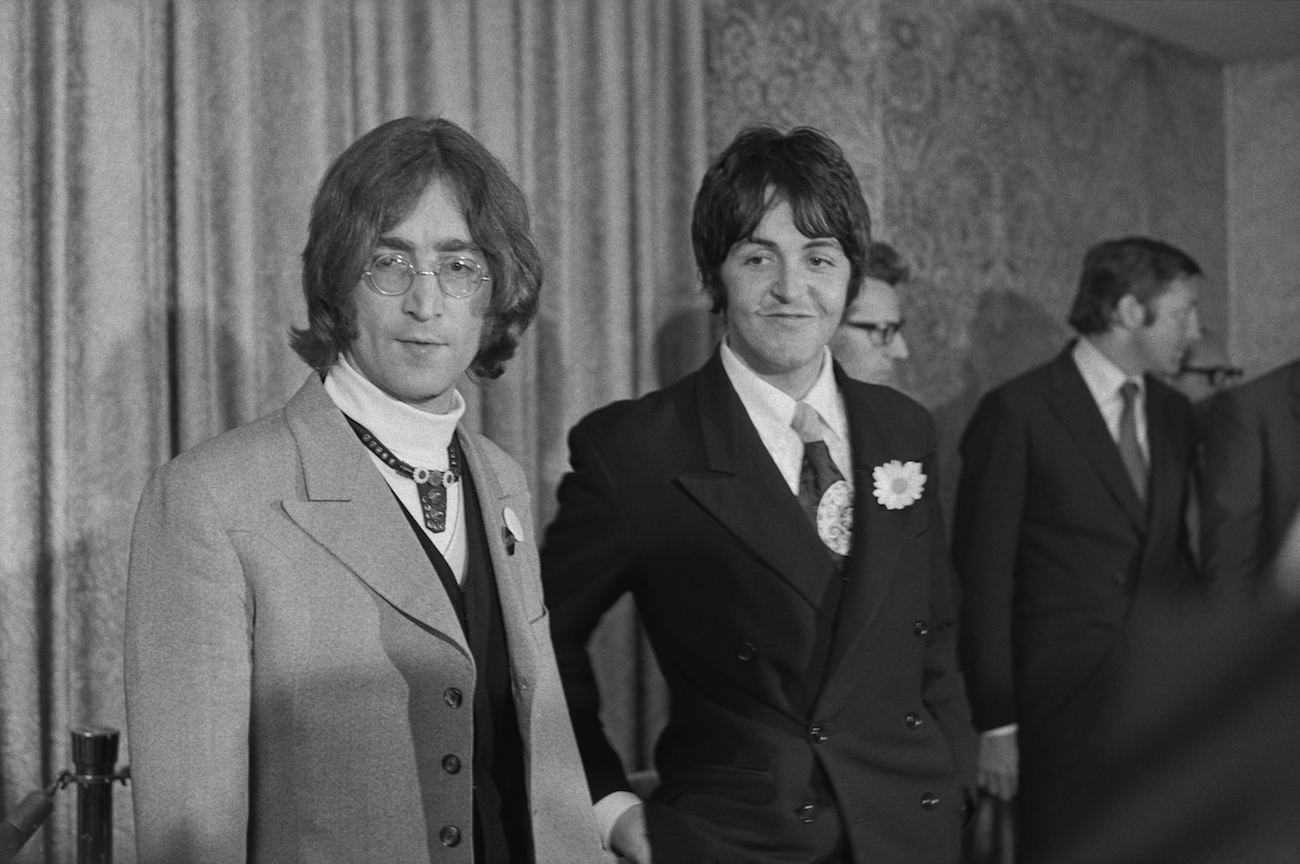
How the bandmate’s songwriting partnership crumbled
When Paul and John formed The Beatles, they also created a strong songwriting partnership. They knew how to help each other out of the maze if a song got too complicated. There was hardly ever a dry songwriting session.
However, toward the late 1960s, the pair began writing songs separately. An even more gapping hole formed between Paul and John when the latter met and fell in love with Yoko Ono. Then, things between the bandmates got worse during the recording to Let It Be.
In Peter Jackson’s three-part documentary, The Beatles: Get Back, Paul came to terms with the fact that John wanted to be with Yoko more than The Beatles.
“See, but their point is that they’re trying to, like be as near together as they can,” Paul said. “They wanna stay together, those two. So, it’s alright. Let the young lovers stay together. But it’s not that bad, you know. We got a lot out of The Beatles so that if-I think John’s thing now-if it came to a push between Yoko and The Beatles, it’s Yoko.”
Director Michael Lindsay-Hogg said that John had told him he “really didn’t want not to be in The Beatles.” Paul said he’d been writing more with John before Yoko came along.
“She really is alright,” Paul continued. “They just want to be near each other. So, I just think it’s just silly of me or anyone to try and say to them, ‘No, you can’t.'”
Paul McCartney said John Lennon seemed excited to tell him he was leaving The Beatles
In The Lyrics: 1956 to the Present, Paul wrote that toward the end of 1969, John “had quite gleefully told us it was over.”
He continued, “There were a few of us in the Apple boardroom at the time. I think George was away visiting family, but Ringo and I were at the meeting, and John was saying no to every suggestion. I thought we should go back to playing smaller gigs again, but the answer came back: ‘No.’
“Eventually John said, ‘Oh, I’ve been wanting to tell you this, but I’m leaving The Beatles.’ We were all shocked. Relations had been strained, but we sat there saying, ‘What? Why?’ It was like a divorce, and he had just had a divorce from Cynthia the year before.
“I can remember him saying, ‘Oh, this is quite exciting.’ That was very John, and I had admired this kind of contrarian behavior about him since we were kids, when I first met him. He really was a bit loony, in the nicest possible way. But whilst all of us could see what he meant, it was not quite so exciting for those left on the other side.”
Things got bad after John announced he was leaving The Beatles
After John announced he was leaving The Beatles, problems between the bandmates skyrocketed. There was a problem when Paul wanted to release his debut solo album before The Beatles could release Let It Be. Then, there was trouble when Paul sued his bandmates to end their time as a band.
Eventually, John started throwing insults at Paul and his music during interviews. Paul wrote “Too Many People” because he thought too many people, including John, were preaching about things they didn’t know. Then, John released “How Do You Sleep?” which aimed at Paul directly. Suddenly, John and Paul were engaged in a diss track battle.
“I’d been keeping largely quiet about John and The Beatles split-up in the press,” Paul wrote. “I didn’t really have many accusations to fling, but being John, he was flinging quite a few in interviews…
“John would say things like, ‘It was rubbish. The Beatles were c***.’ Also, ‘I don’t believe in The Beatles, I don’t believe in Jesus, I don’t believe in God.’ Those were quite hurtful barbs to be flinging around, and I was the person they were being flung at, and it hurt.
“So, I’m having to read all this stuff, and on the one hand I’m thinking, ‘Oh f*** off, you f***ing idiot,’ but on the other hand I’m thinking, ‘Why would you say that? Are you annoyed at me or are you jealous or what?’ And thinking back fifty years later, I still wonder how he must have felt. He’d gone through a lot.”
On “Dear Friend,” Paul wanted to stop the bashing and simply ask, “Does it need to be this hurtful? Are you afraid of the split-up, of my doing something without you? Are you afraid of the consequences of your actions?”
In the end, John and Paul repaired their friendship, which Paul is enormously thankful for. Paul can’t imagine what he would’ve done if they never became friends again.
